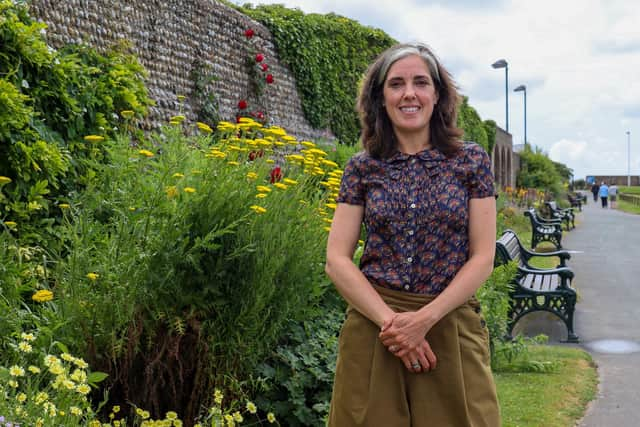Worthing to phase out use of harmful pesticides - 'the future is looking eco-tastic'
and live on Freeview channel 276
A motion to phase out glyphosate and other synthetic herbicides and pesticides was passed by Worthing Borough Council’s Joint Strategic Sub-Committee on Tuesday (5 July).
It was put forward by Vicki Wells, who is now cabinet member for the environment.
Glyphosate is one of the world’s most common weed killers.


Advertisement
Hide AdAdvertisement
Hide AdIts use has proven controversial due to links with negative health impacts and harm to pollinators and other species.
Ms Wells said the weed killer is traditionally used by the council to ‘quickly combat weeds and unwanted grass in a variety of locations’ as well as to control invasive species such as Japanese knotweed and giant hogweed.
“Glyphosate-based pesticides and herbicides have a devastating impact on both flora and fauna and are associated with several forms of cancer and have been banned or restricted in many countries including France, Denmark and The Netherlands,” according to the motion.
“Over 80 local authorities across the UK have phased out or put measures in place to phase out toxic pesticide use.
Advertisement
Hide AdAdvertisement
Hide Ad“Other local authorities have unanimously passed a motion to phase out the use of glyphosate and have adopted non-chemical alternatives.”
The Marine ward councillor put forward a number of ‘ecologically sound alternatives’ such as hot foam, acetic acid, mulching, and hand weeding.
Ms Wells highlighted West Park as an example, where glyphosate was shunned in favour of manually removing grass to make way for flower beds.
Cabinet members unanimously supported the move with some asking if the weed killers could be phased out in less than the suggested 18 month period.
Advertisement
Hide AdAdvertisement
Hide AdPaul Brewer, director for digital, sustainability & resources, said an audit is being carried out into weed killers used by the council and Ms Wells said the 18 month period would allow for consultation with the parks and waste services teams.
After the meeting, Ms Wells tweeted: “I am thrilled my Glyphosate-Free #Worthing Motion was unanimously supported at tonight’s Joint Strategic Sub-Committee. The future is looking eco-tastic as we start phasing out #glyphosate from our pavements, promenade and parks.”
She added: “We recognise the biodiversity decline in species of pollinating insects including bees, wasps, hover flies, moths, butterflies and beetles due to the destruction of natural habitats, so we are determined to phase out these harmful pesticides in favour of safer, non-chemical options to manage these spaces.
“The phasing out of glyphosate is crucial not just for ecosystems in our built environment but also for our coastal environment. While we aspire to Blue Flag status, we must sustainably maintain our coastal areas. This means ending glyphosate use along the promenade because it can enter our coastal waters via the surface drainage system.”
Advertisement
Hide AdAdvertisement
Hide AdEmma Cameron, Chair of Worthing Climate Action Network, added: “Studies have found that glyphosate-based herbicides can interfere with organs and biochemical pathways in mammals. At low concentrations it damages liver, kidney and skin cells and long-term effects include cancer, infertility, pregnancy problems, birth defects and respiratory diseases and glyphosate has effects on the environment, destroying habitats and food supplies.”